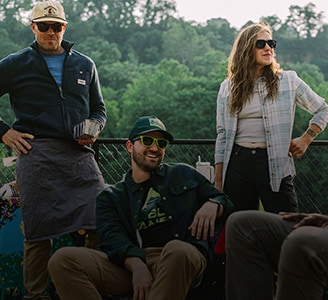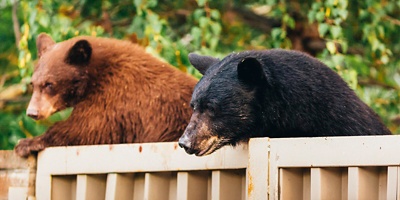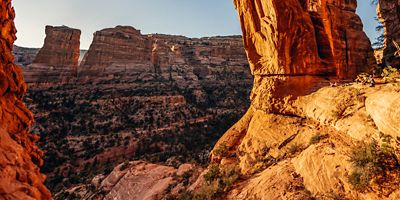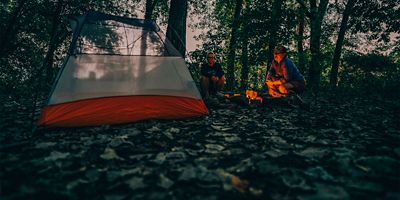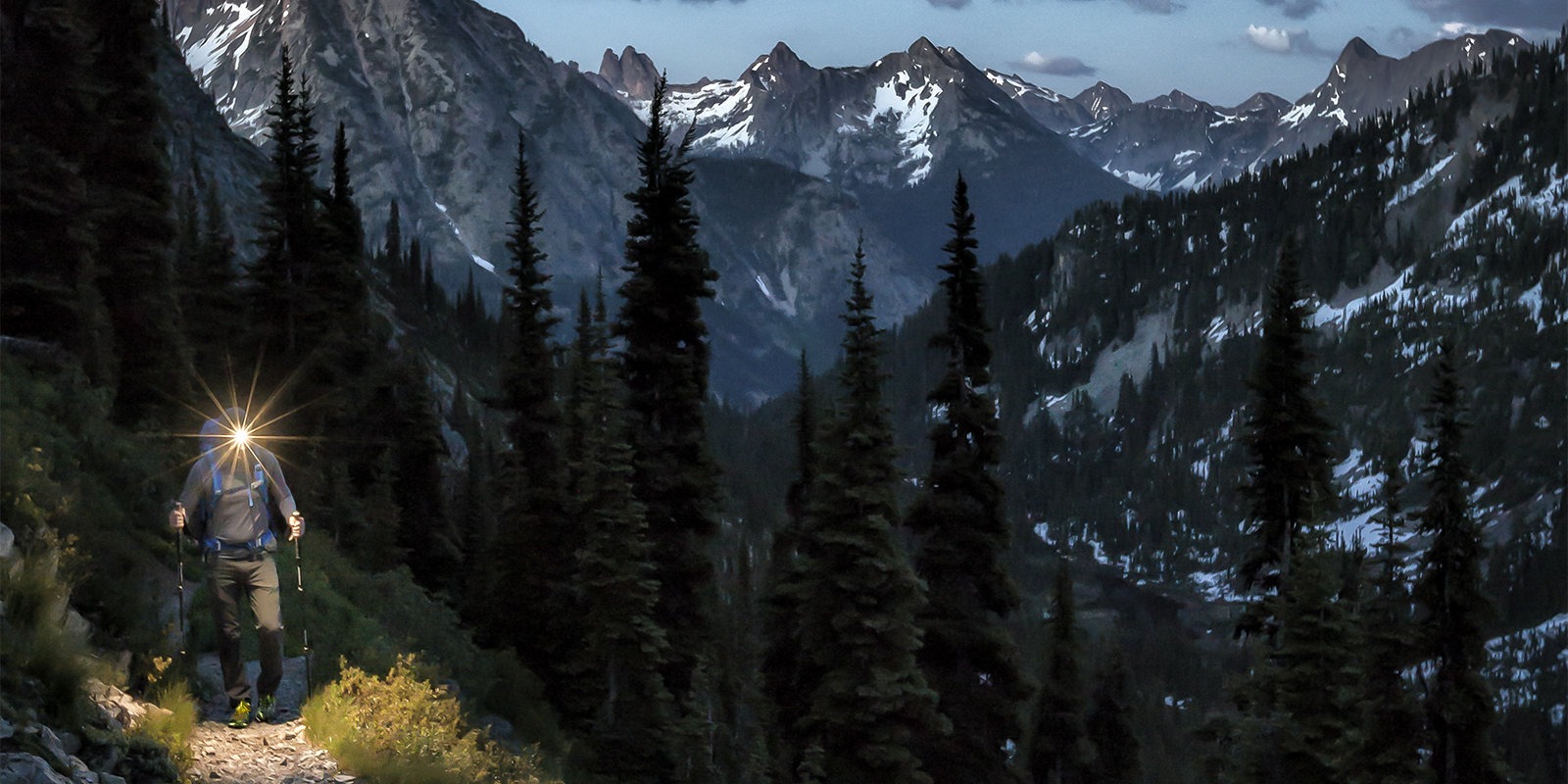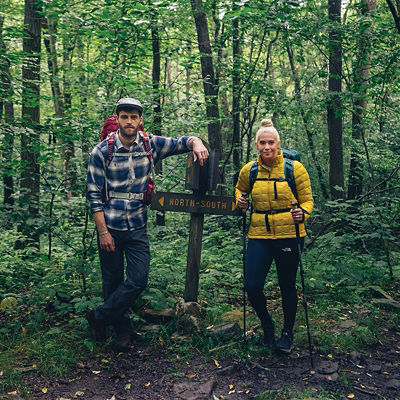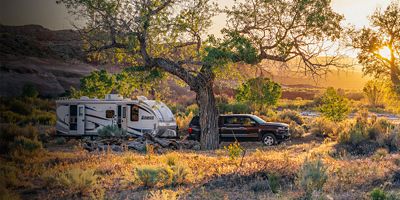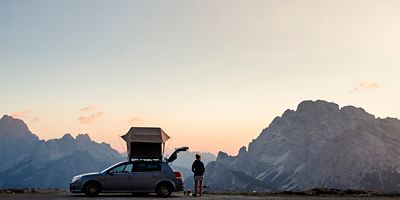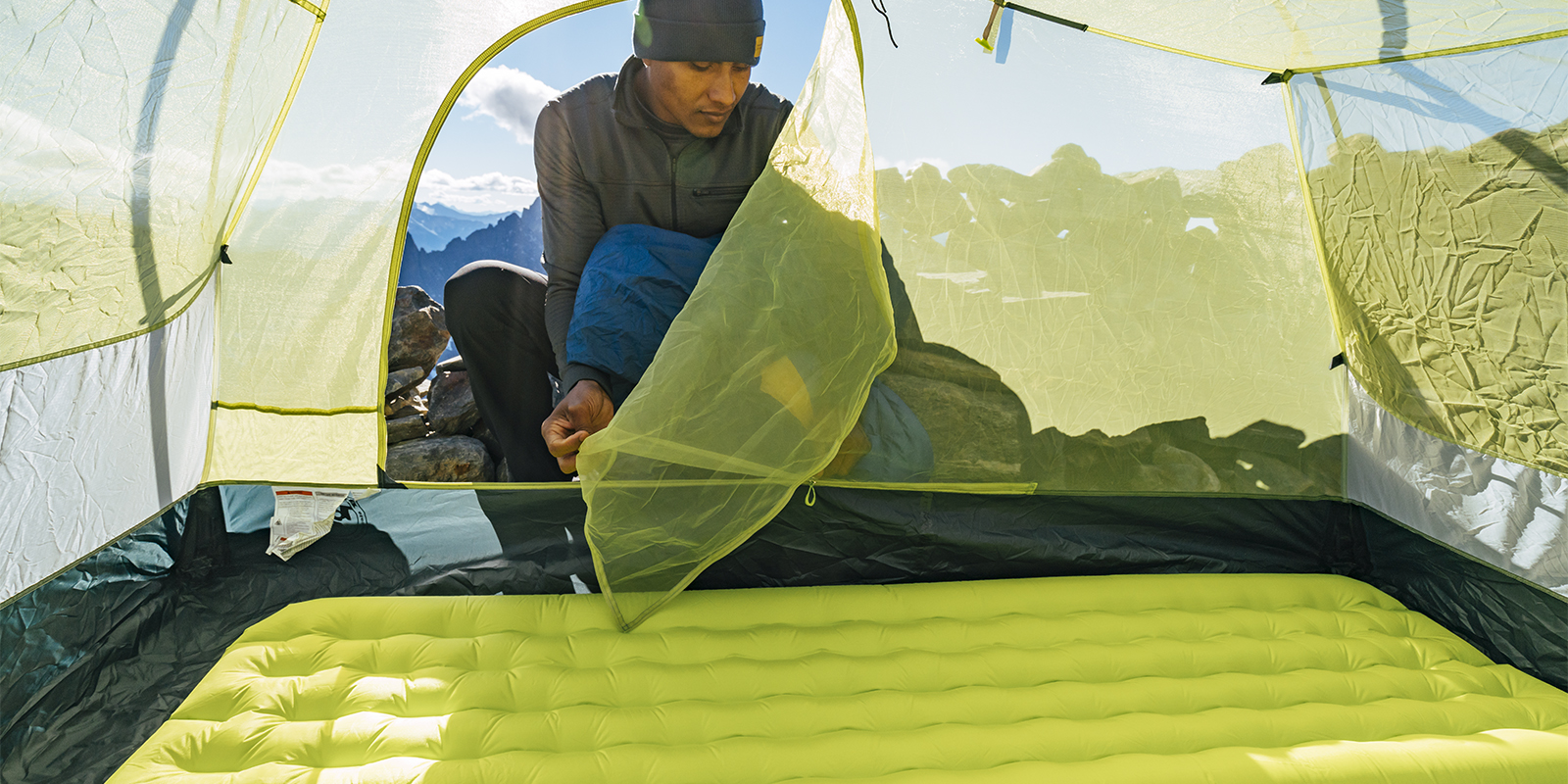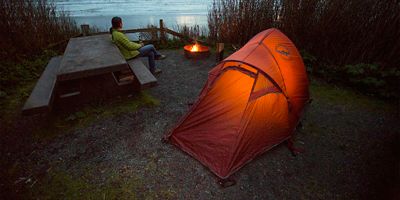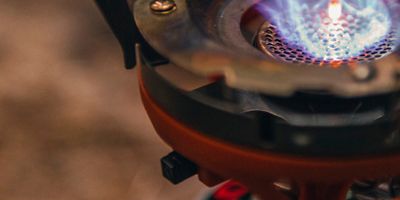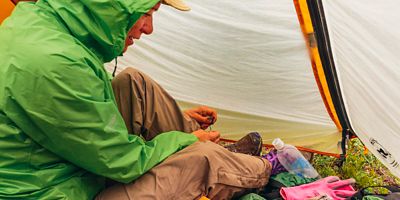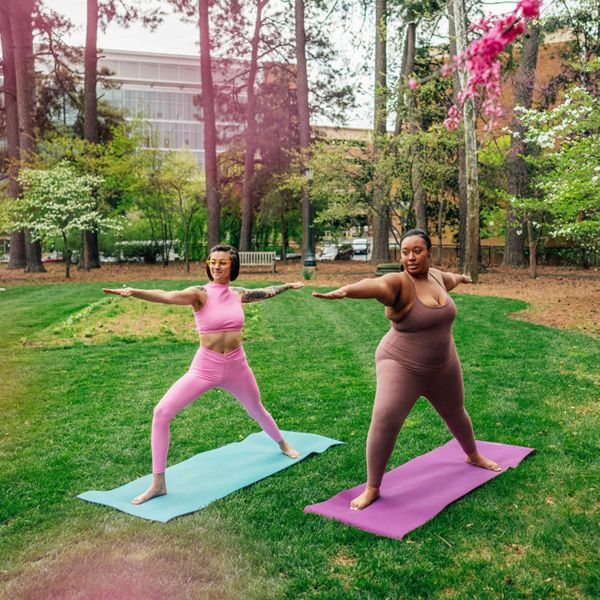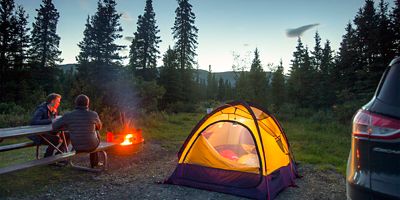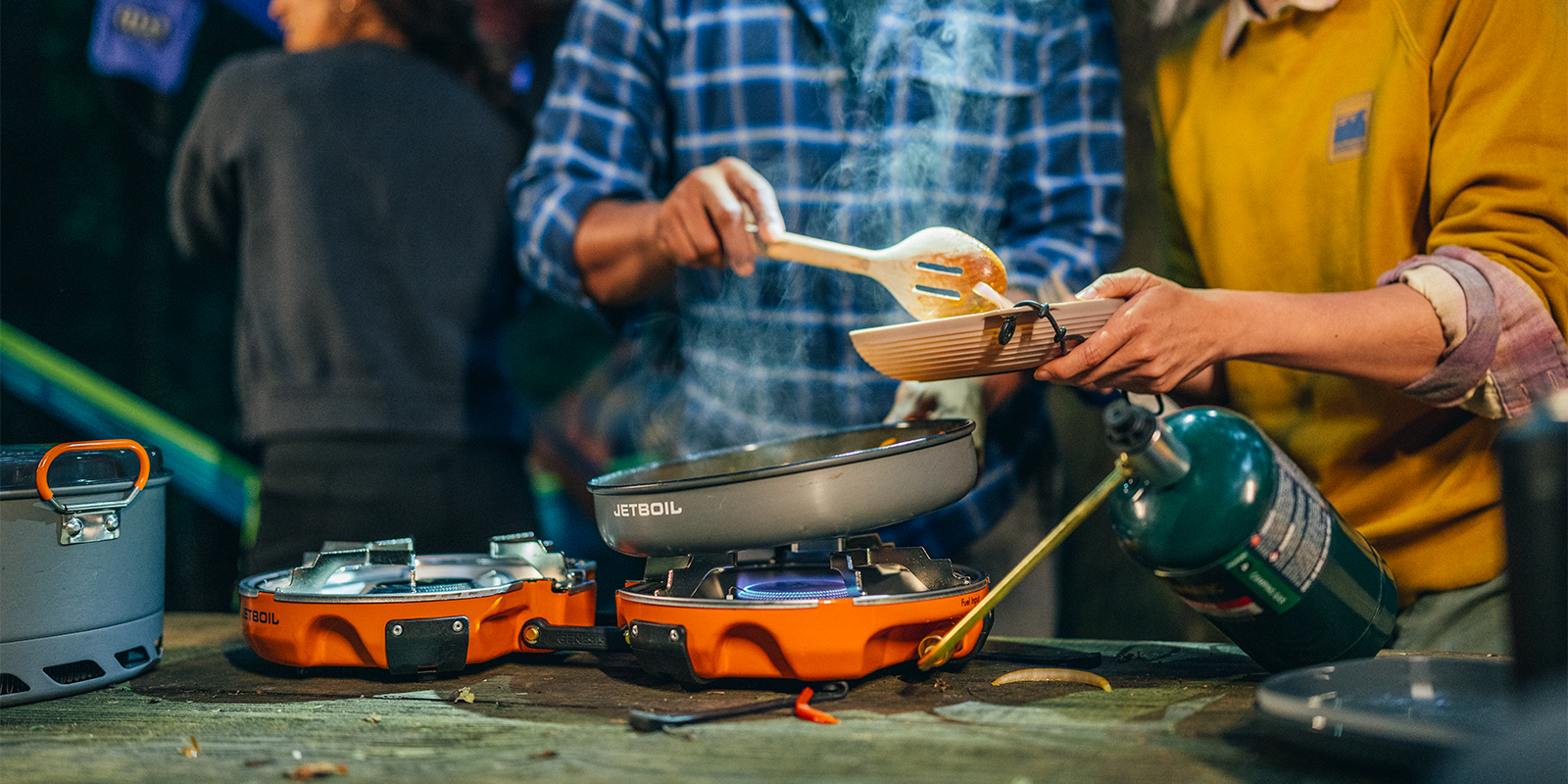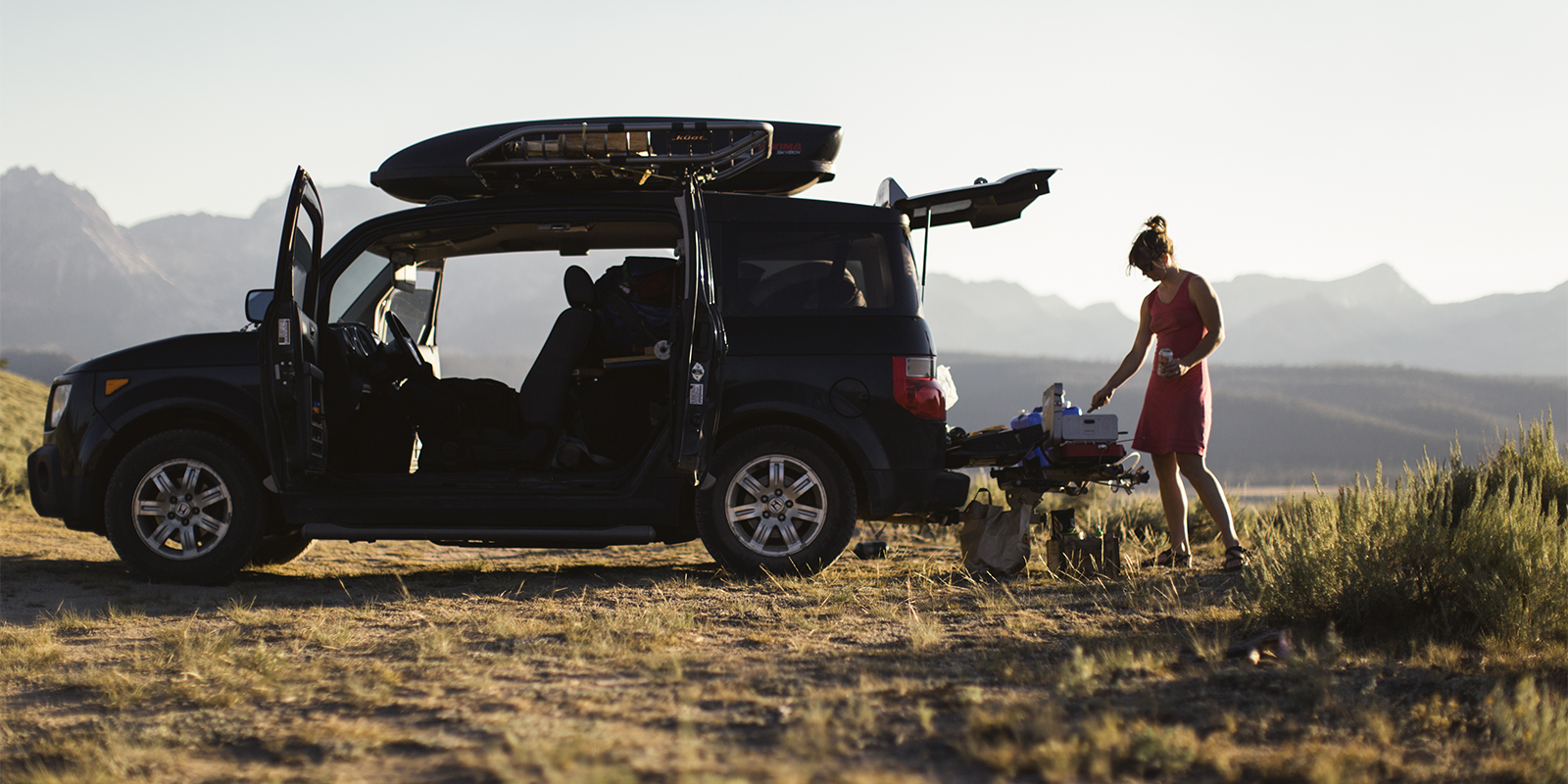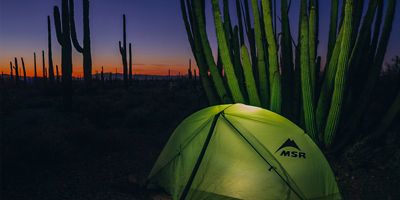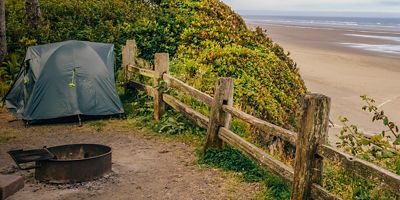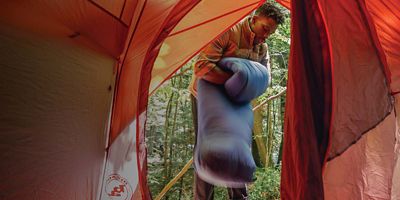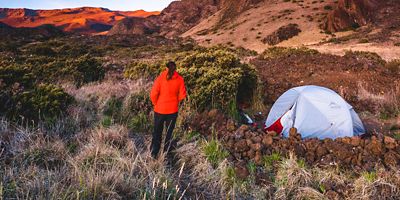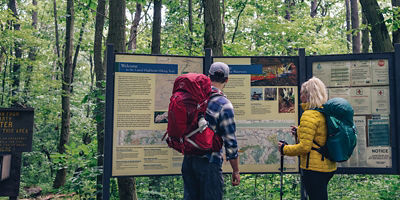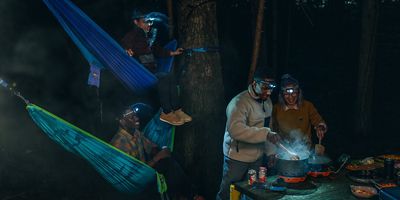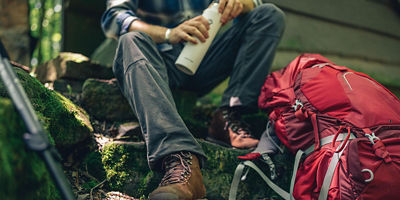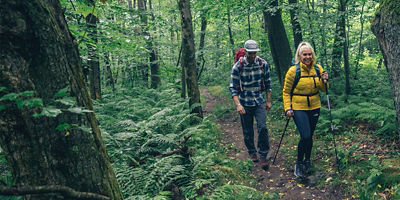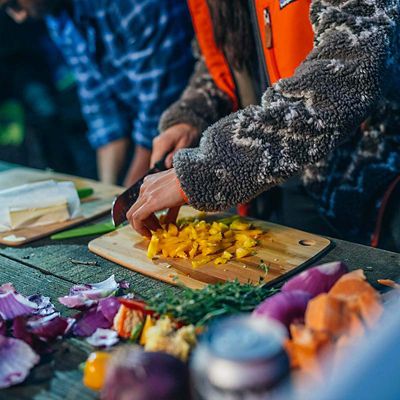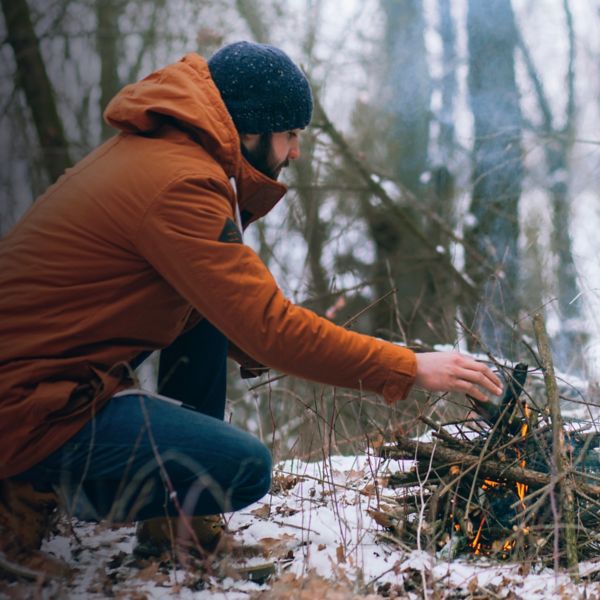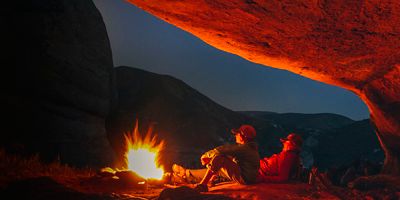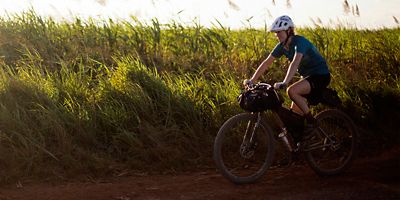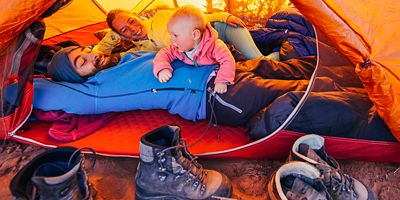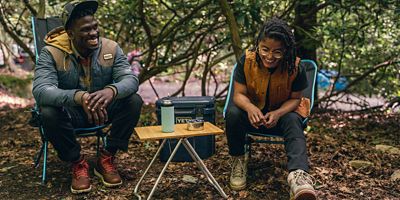When camping in bear country, avoiding encounters begins in the kitchen. This is true for all bear species; don't make the mistake of taking grizzlies seriously and being more lax around black bears. An encounter with either can be dangerous for you, and bears that get accustomed to human food are a danger to themselves (problem bears are often euthanized).
You’ll need to store your food in bear-resistant containers, plus keep any prep, cooking, and eating areas clean. And remember, you’re working to lower the odds of bear-human interactions for everyone. Preventing bears from eating human food means you’re keeping them from perpetuating the unhealthy, learned habit of seeking out campers in search of more food in the future.
First and foremost, limit and manage smells. Avoid packing the strongest smelling foods, like tuna and bacon. And remember that to bears, anything with a scent is “food,” so anything with a foreign odor must be stored properly. Beyond your actual food, that includes: sunscreen, bug repellent, soaps, cosmetics, toiletries, drinks, canned goods, trash, coolers, and any cookware. So, whenever you’re not tending to your camp (at night or when you’re off on a day hike), you need to secure all scented items.
In many national parks and wilderness areas, campgrounds are equipped with food lockers. Some areas allow visitors to hang food bags from trees (or poles or wires provided for this purpose), and others require the use of bear canisters. Always research the bear regulations for your destination before leaving home. Whichever storage method you use, you can create a bear-safe camp by following a few guidelines aimed at keeping the area clean, with all “smellables” properly stored.
Do: Secure Your Scented Items Immediately Upon Arrival
Don’t: Forget to Clear Your Car of Smells
This includes trash, baby seat crumbs, and canned food or sealed drinks—anything that could omit a smell.
Do: Use Food Storage Lockers Whenever Provided
If they aren’t provided, identify a location at least 300 feet away from your sleeping area to hang your bear bag or to keep your bear canister.
- Food storage lockers: These big, metal cabinets have special latch-handles that prevent bears from accessing whatever’s inside.
- Bear bags: To hang a bear bag from a tree, look for a sturdy branch that is more than 15 feet off the ground and that extends at least 10 feet from the tree trunk. Toss your rope over the branch (a throw bag weighted with a rock helps). Gather your smellables in a sack, attach it to the rope, and hoist the bag so it’s at least 12 feet off the ground and 4 feet from the trunk, dangling in space. Then secure the rope.
- Bear canister: Pack your smellables inside the canister, seal it shut, and place it at least 300 feet from where you’re sleeping. Keep it away from rivers, lakes, or cliffs, so a bear can't knock it in the water or over the edge.
Don’t: Store Food in Your Car, Truck Bed, Tent, or Backpack
Bears can pry open car doors, climb into truck beds, and easily destroy tents and backpacks. Storing attractants in your car should be a last resort; lock them in your trunk if you have no other choice. Make sure any storage containers you use are designed to resist bears.
Do: Wash Dirty Cookware and Surfaces
Make sure all food remnants are cleaned off from any utensils, pots, or pans you used to cook. Pack up any food scraps from your camp kitchen, the ground, or picnic tables, and include all cookware (and trash) in your food storage containers.
Don’t: Burn Excess Food
Organic matter like tea bags, coffee grounds, etc., requires intense heat to burn, and partially burned items will still draw animals to camp.
Do: Strain your dishwater and put any fod scraps in the garbage.
Scatter dishwater at least 300 feet from your sleeping area.
Don't Drain pasta water or other cooking water close to camp; scatter it far away, just like dishwater.
Do: Keep your sleeping gear free of odors.
Don’t: Cook in your tent or sleep in clothes that smell like food.
